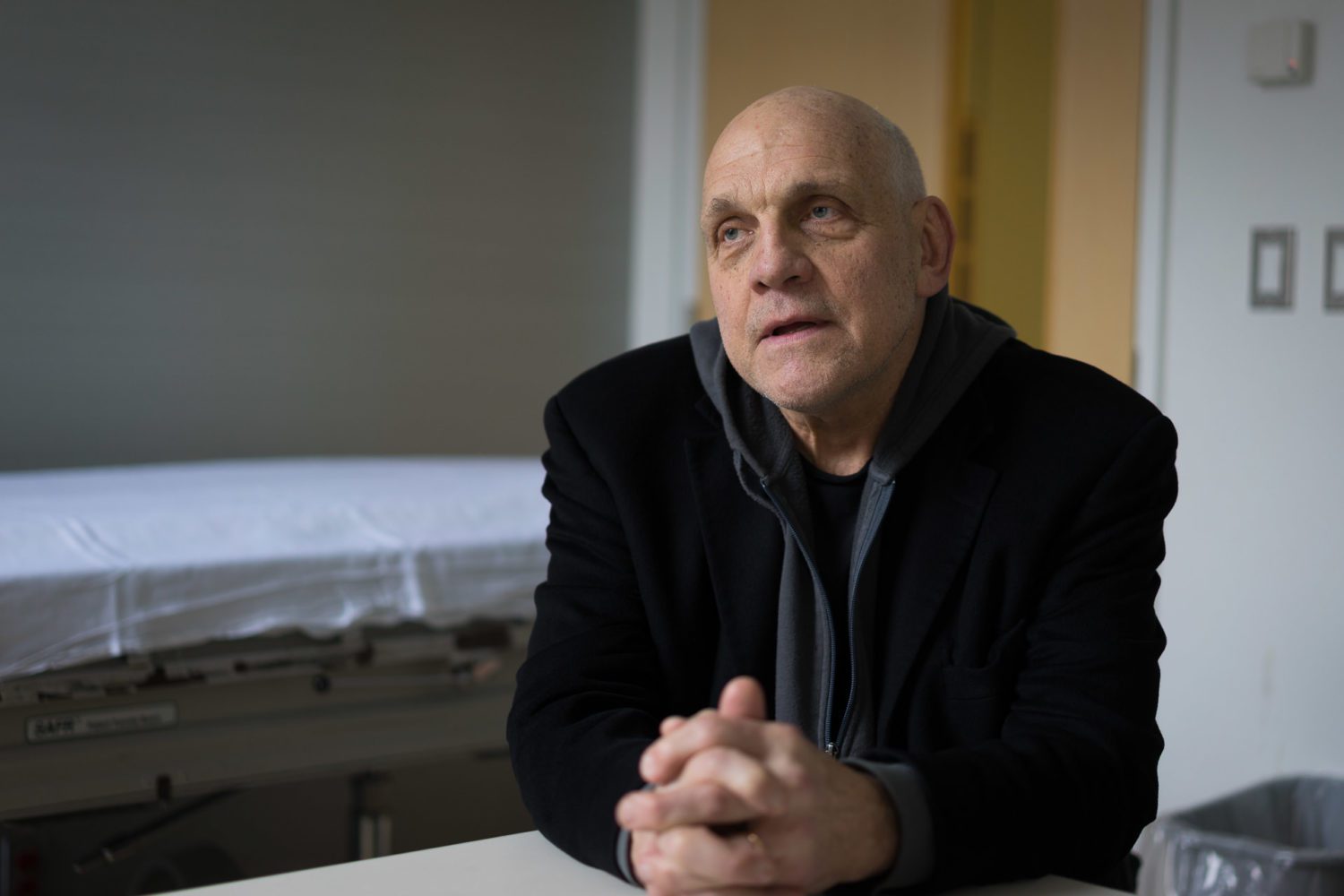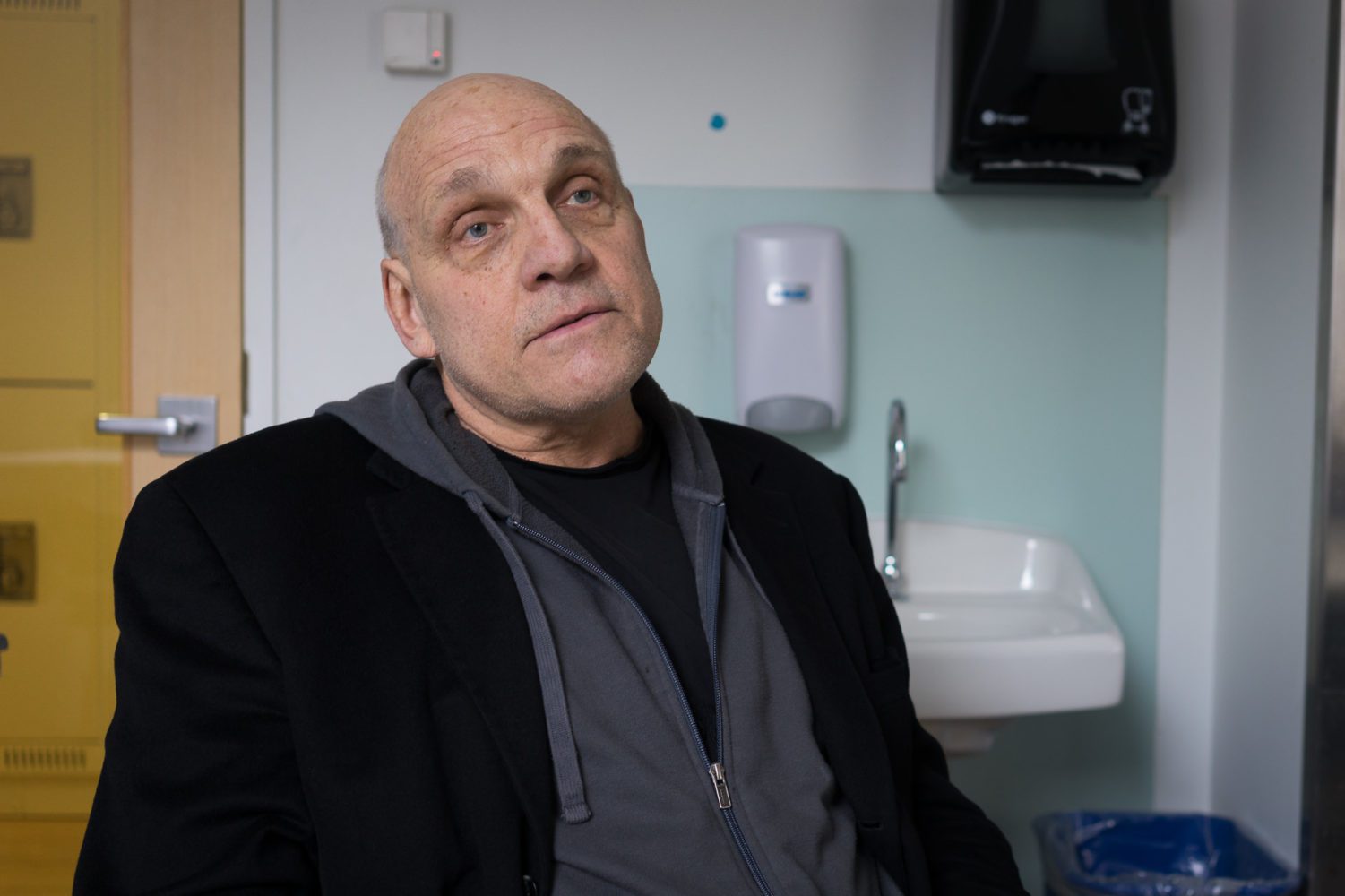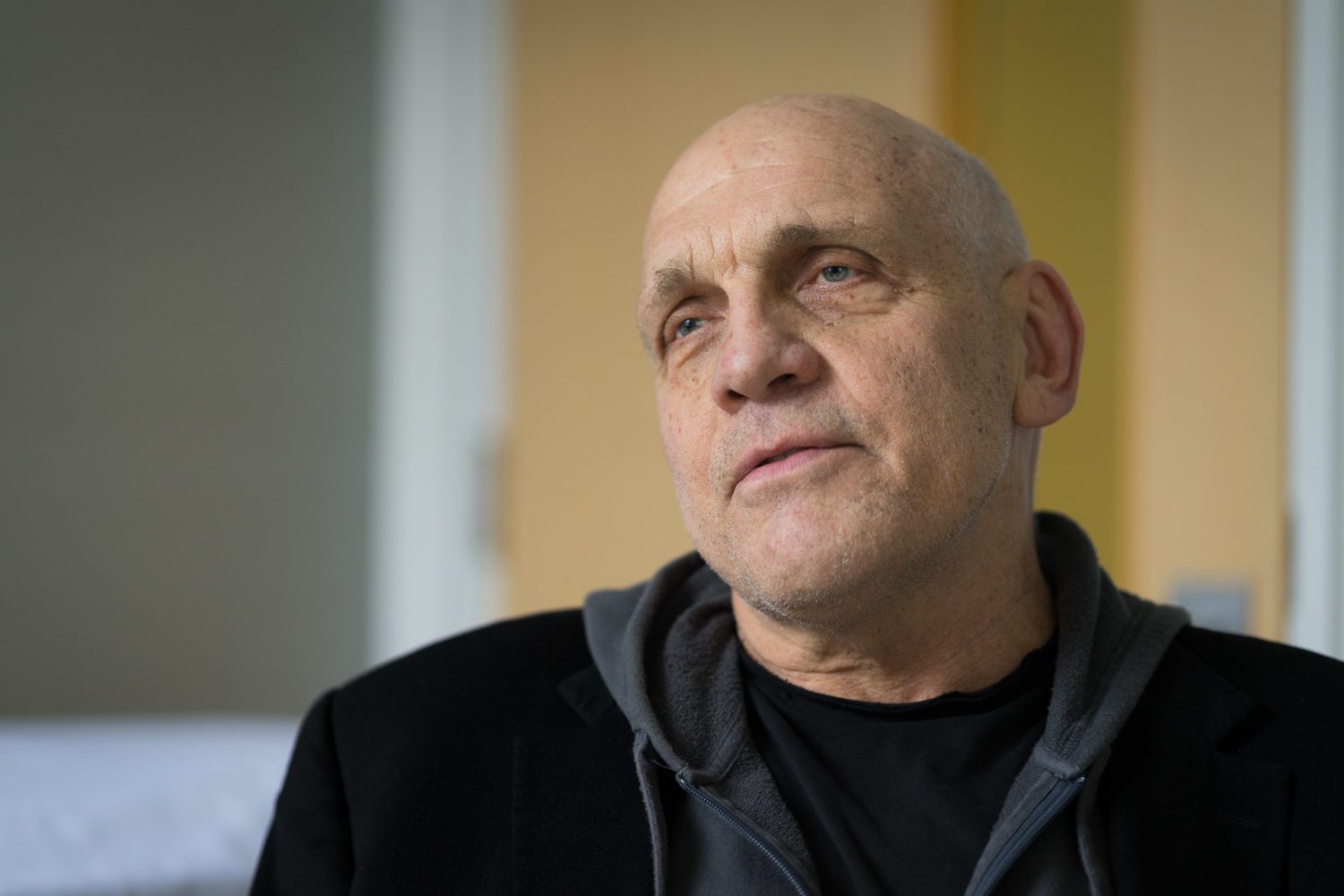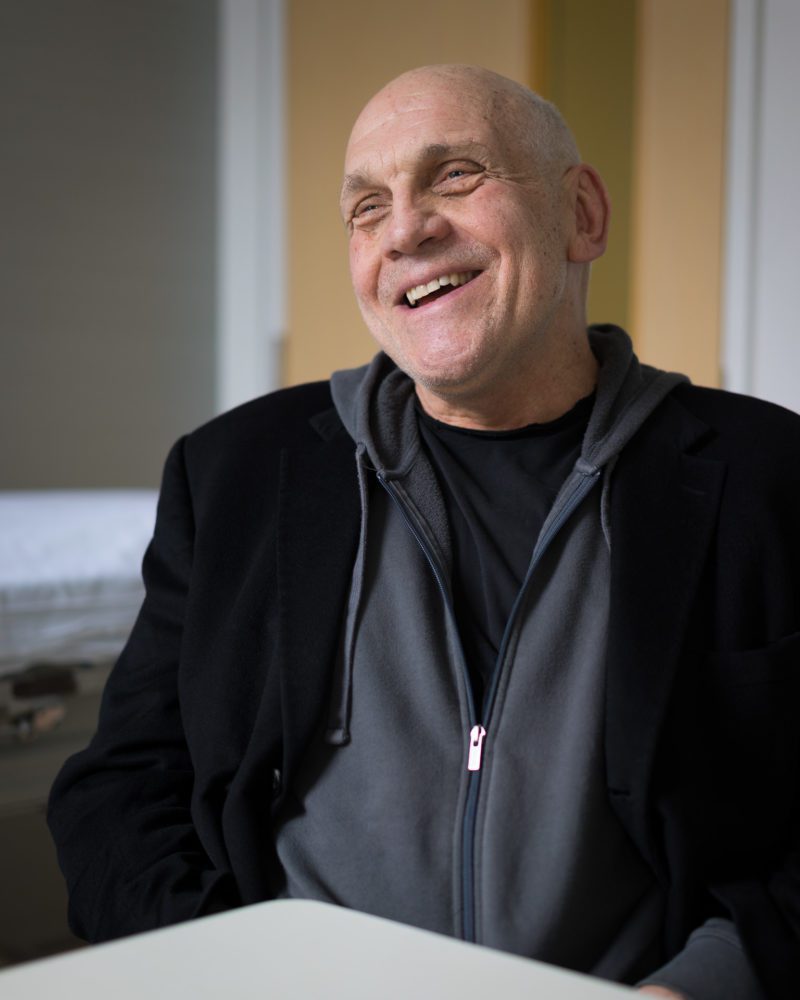Conrad is an actor who has worked as a standardized patient for 25 years. He is trained to serve as a “practice patient,” to help health care students practise and test their skills.
I was working at a catering job. As actors, we need lots of jobs! One of the people I was working with also worked for the standardized patient program at the University of Toronto and suggested I sign up. I have done it for 25 years and I prefer it to film work. I feel like I am doing something for society. Helping students get better at what they do.
The psychiatric roles are the most interesting. I have played depression, I have played manic, I have played paranoid. Doing the manic roles is really hard, especially if you have to do them for a long time.
I played meningitis 32 times in one day, so I had to have the Babinski [a painful scratch to the bottom of the foot to test for neurological damage] 32 times. That was a painful day! But you get through it.

To be a good SP, you need to be open-minded, and not bring your personal issues into the room. And you have to realize that it is not about you, it’s about the learners.
It’s important to know that it’s not acting. It’s role play. A lot of people who want to be actors have to be trained that it’s not about being the most psychotic person in the universe, right? I think that learning a standardized patient role is like understudying a main actor. You’re not doing your own performance; you are doing that actor’s performance.
I did a role where I was a promiscuous man. I had a doctor from Africa who was a Catholic nun. And she was so good! She was so empathetic and she just got it. It blew me away—I was crying.
How have health care students and standardized patient interviews changed over the years?
Students have become more open to patient-centered interviewing. It has become more important to include the patient perspective in health care and in the interview, which makes sense to me. However, one of the things I have started saying to the young med students is, “Don’t throw the baby out with the bathwater.” In other words, the science is important too. Sometimes that gets lost in the teaching of patient-centred interviewing.
When students are in first year, the hardest part is to help them relax and realize they don’t have to be the best doctor in the universe. And to realize that there is no perfect interview. We all make mistakes right? But there are good interviews, and I am there to help them learn how to do good interviews. I have learned that it’s really helpful to teach while doing the interview. If a student makes a mistake, I push back to help them learn what didn’t work so well.
There are arrogant students but I don’t let them bother me. Medical students and residents have to work hard and go through so many hoops to get where they are going. I am amazed by that.
Medical students are thought to lose their empathy over time. Have you noticed that?
I wouldn’t say they lose it but I’d say they have to compartmentalize it. Because they are so busy.
I work with nursing, physiotherapy and pharmacy students a lot, in addition to medicine. I love the combination of different students—a pharmacist, a doctor, a nurse practitioner and a nurse—working together. Training along those lines is new in the last 10 years. It’s really rewarding to know that people are working together.
People in North America feel entitled. People get angry because doctors think they are gods, and a lot of that is because we come to them wanting them to save us.
I’ve also worked with international medical graduates to help them learn to fit into the Canadian system. That can be challenging. A lot of them are from the old school where it’s like, “I am the doctor. I am in charge. Let’s do it my way.” A lot of them don’t really want to hear feedback from standardized patients. They want to hear it from other doctors, which is understandable. It gets tricky. I mean, those cultural barriers are hard to break.
Prejudice can be a huge issue. We used to do seminars with international medical grads and we did a role that involved lesbianism and sex toys. It was hard at times. Having said that, I did a role where I was a promiscuous man. I had a doctor from Africa who was a Catholic nun. And she was so good! She was so empathetic and she just got it. It blew me away—I was crying. For every one of those who doesn’t get it, there are those who do.

It’s rewarding to have helped students become doctors. My father-in-law died about eight years ago and some of the third-year students I had worked with cared for him. They were actually using some of the stuff that we taught them! It felt unbelievable. I’ve had doctors who 10 years after the training say to me, “Thank you! It was really helpful.” That’s really amazing.
I also sit and listen and learn from the professors who are teaching the students. That’s wonderful too. I can’t tell you how much I have learned. In some ways it’s turned me into a hypochondriac!
The way people in health care have to navigate the bureaucracy—the hospitals, the government and the patients! I can’t imagine being a family doc right now. I am going to get political here: People in North America feel entitled. People get angry because doctors think they are gods, and a lot of that is because we come to them wanting them to save us.
I mean life is fragile. That’s something I have learned from doing this job. It’s not fair. How do students and doctors deal with that?




The comments section is closed.